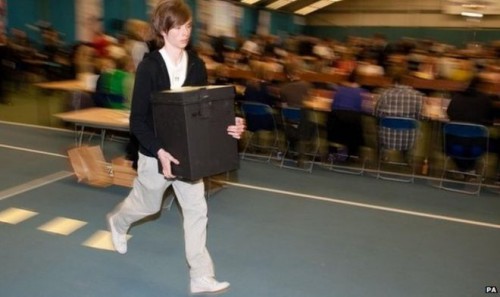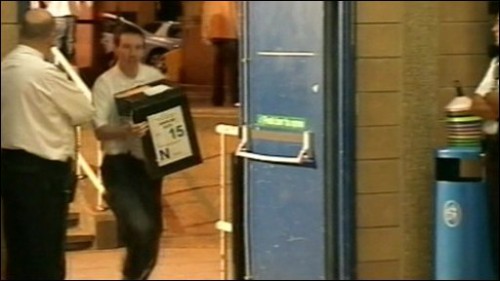8th May 2015
Counting the votes: Houghton & Sunderland South (formerly Sunderland South)
By the time you are reading this, we will know the results of the general election in Britain. I expect that I will have stayed up all night to learn about the results because I love elections. I find them fascinating – especially how different areas vote.
I shall probably have waited impatiently for news from Sunderland, in the north east of England. I have a particular affection for that part of England as I went to university in the nearby town of Durham. And I voted for the first time in a general election in Durham, way back in 1983.
As I noted in my blog Voice and Choice, our system is a representative democracy. We vote for a Member of Parliament (or MP) to represent each area or constituency in the House of Commons, the lower house of our Parliament. We say that the successful candidates will “take up their seat in Westminster”. Nearly all candidates belong to a political party, and whichever party, or coalition of parties, that “commands a majority in Parliament” forms the government.

I shall wait for news from Sunderland, because that’s the likely to be the first result – the constituency of Houghton & Sunderland South, which declared first at the last elections in 2010. The seat is made up of the town of Houghton-le-Spring and southern parts of the city of Sunderland. It only came into being in 2010 when Houghton-le-Spring was added to Sunderland South, which had been the first constituency to declare in the previous four general elections.
Constituencies change regularly to take account of population changes. This process is conducted by the Boundary Commission which checks the boundaries every 5 years. Their aim is to try to have constituencies that have roughly the same number of voters over the whole of the United Kingdom.
There are exit polls in which polling companies ask voters how they voted. The first results are the first hard evidence of how people actually voted, rather than how they said they voted. After the first few results, the British media then project the final result of the elections across the whole country.
Counting the votes is conducted in one place by teams organised by the local authority. All the ballot boxes from the polling stations are taken to a central location, usually a large public hall, where they are registered, and all ballot papers accounted for. Then each box is opened and votes are sorted and counted by teams of local volunteers. This happens in front of observers who follow the whole process.
In large towns and cities, where there are more than one constituency, the local authorities often conduct the counts of several seats in one centre. Sunderland City Council is responsible for three seats. Birmingham City Council conducts counting for nine different seats at the Birmingham International Conference Centre.

Voting takes place between 07:00 in the morning until 10:00 in the evening. As soon as the polls close, the team in Sunderland springs into action. This video gives some idea of the speed and organisation of how they collect the ballot boxes and take them to the counting hall in Silksworth Lane, Sunderland.
As I write this, I see that Sunderland City Council plans that ballot boxes Houghton and Sunderland South will be delivered to the counting hall within half an hour of the polls closing. They then expect to complete counting by 11 pm. Such is the speed and organisation, the other two constituencies in the Sunderland area may be the next constituencies to declare their results within an hour.
At the end of the count, there is a short ceremony led by the “returning officer”. This follows a familiar pattern: the returning officer states the total number of voters cast, votes for each candidate, and then declares the winning candidate as the new Member of Parliament for the constituency. The winning candidate then gives a short speech in which it is the tradition to thank the returning officer and staff.
Not all constituencies are as quick. Some are large and cover some of the many islands that make up the British Isles. So ballot boxes have to be shipped by helicopter or boat. St Ives in Cornwall doesn’t start counting until the following morning, because they have to wait for the ballot boxes to come from the Scilly Isles, which are 45 kilometres away into the Atlantic Ocean. At least that allows for local people to have a good night’s sleep before the vote takes place.
This is a particularly exciting election because the opinion polls suggest that the voting will be very close. The pollsters are also unsure how the vote for some of the parties will affect the overall outcome in our “first past the post system” – where the winning candidate just needs to win most votes.
Whatever the outcome, I’m sure I will have waited impatiently to hear how the vote went in Houghton & Sunderland South, and how it was replicated or not across other constituencies in Britain.
Hi Bruce
not sure if you remember but i visited you a few weeks ago with Richard Street with thd chernobyl children life line Pinxton and east Derbyshire link .
I would like to thank you for the letter that you wrote to the young girl in the cancer hospital . If only youhad seen her face.
Thanks again
Aidan Tagg